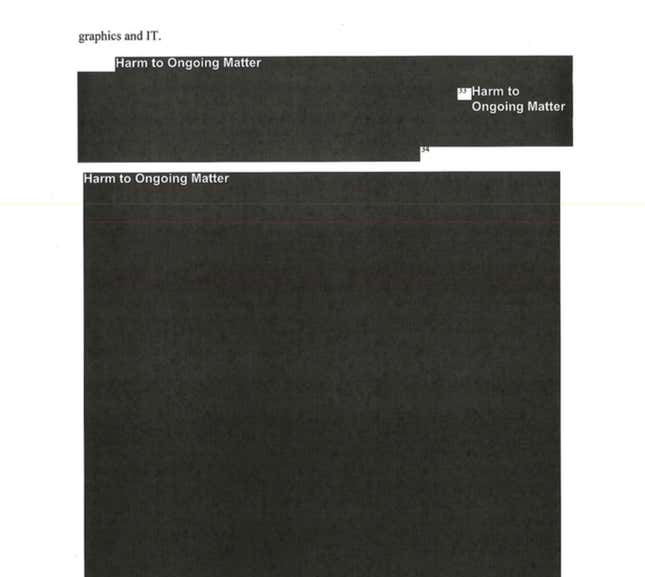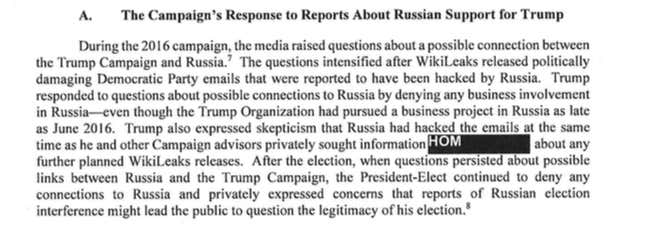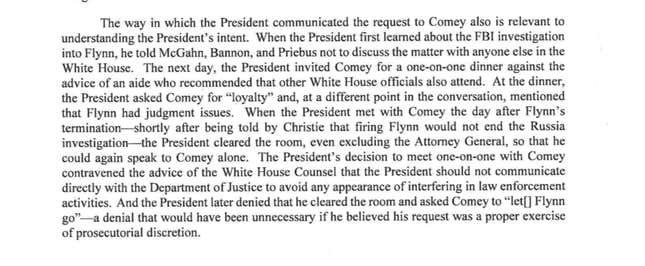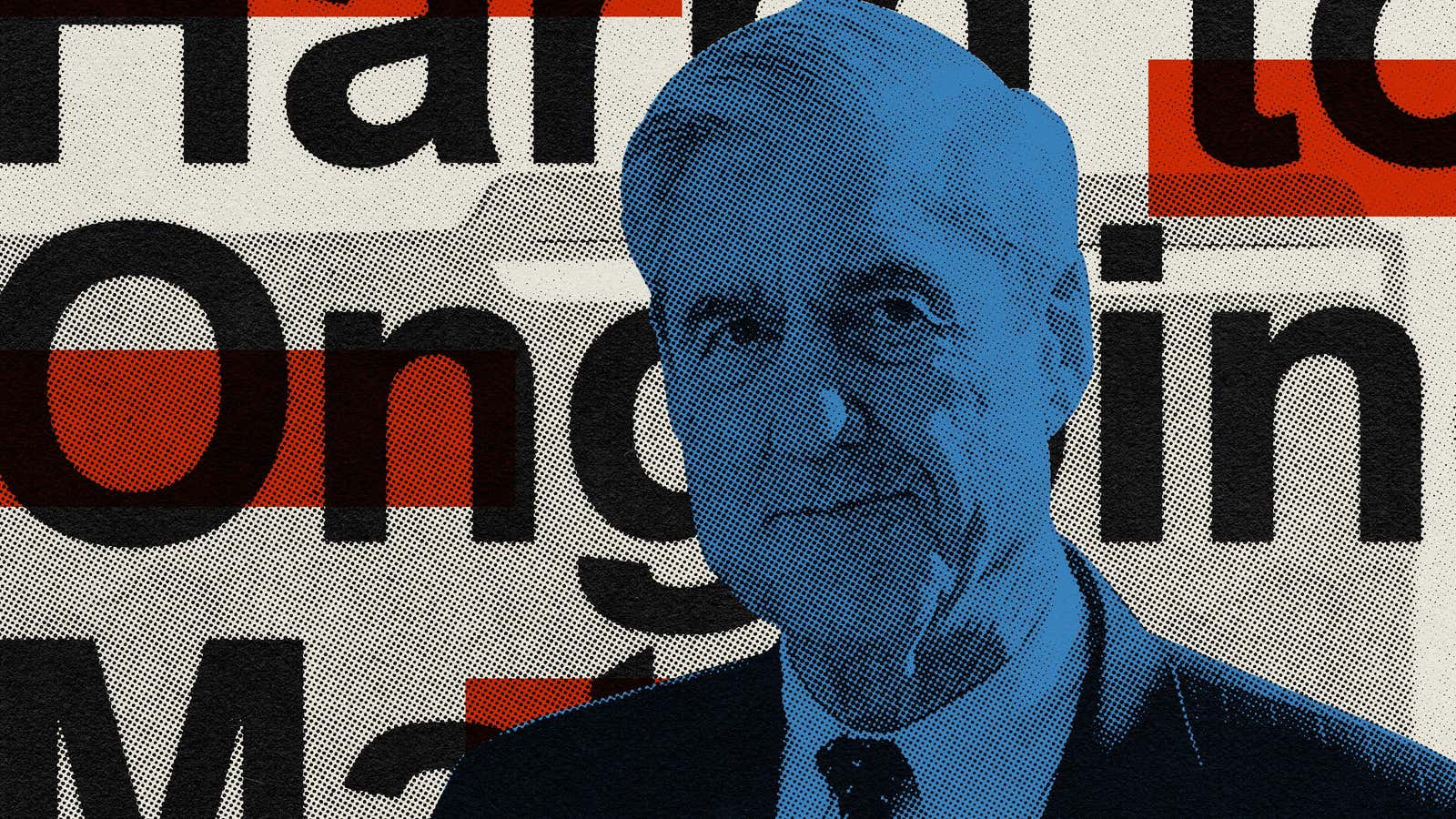A redacted version of the long-awaited Mueller report was finally released today by the US Department of Justice. Nearly two years in the making, the 450-page document traces the investigative efforts of special counsel Robert Mueller and dozens of FBI investigators and lawyers, and includes testimony from officials including former attorney general Jeff Sessions, director of intelligence Dan Coats, and Donald Trump’s own written answers to questions.
The report traces the contours of what was already publicly known about interactions among Russian government operatives, Trump’s 2016 campaign and his administration. It describes the lies of his former national security advisor Michael Flynn and details Trump’s private meetings with former FBI director James Comey, for example.
It also provides much more detailed information about the breadth of Russia’s meddling in the US presidential election and the Trump administration’s pushback against the investigation. And counter to attorney general William Barr’s public remarks today, the report leaves open questions about Trump obstructing justice and his campaign’s interactions with Russia ahead of the 2016 election.
1. Russia’s attempts to help Trump may have started in 2014
Russian-government connected troll farm know as the Internet Research Agency formed a special US department in the spring of 2014, in order to influence public opinion through social media, the report states (p. 19).

What this department did, exactly, and who it talked to among the Trump campaign remains a mystery. Nearly all of the rest of that section is redacted from the report, citing “Harm to Ongoing Matter.” The “ongoing matter” is likely the ongoing investigation into Trump advisor Roger Stone’s involvement in Russian meddling. Stone goes on trial in November, and the DOJ had said it would redact information related to his case.

2. Team Trump knew Russians were working to support him
The investigation found that the Trump campaign expected it would benefit from Russia’s efforts:
Although the investigation established that the Russian government perceived it would benefit from a Trump presidency and worked to secure that outcome, and that the campaign expected it would benefit electorally from information stolen and released through Russian efforts, the investigation did not establish that members of the Trump campaign conspired or coordinated with the Russian government in the election interference activities
It also states that the president and his campaign were privately seeking information about further Wikileaks email releases, after the emails were reported to have been hacked by Russia:

Trump’s own written answers to the special counsel’s questions, which are included in full at the end of the report, state that he had “no recollection” of being told that any foreign government had provided, or wished to provide, support to his campaign.
3. Mueller thinks Trump is a liar
The report questions the truth of the president’s public remarks and of his written answers multiple times, indicating that the special counsel’s office believes Trump was being knowingly deceitful.
When recounting Trump’s denial that he “cleared the room” to meet alone with former FBI head James Comey (p. 47 of the document), the report notes that his denial indicates that he knows such behavior would be wrong:

The president lied publicly about his business involvements in Russia, the report notes, and “expressed skepticism” about Russian hacking even as he was seeking out more benefits from a hack (see no. 2).
Trump’s written answers were so “inadequate” that the special counsel’s office considered asking him to interview the president in person, but then decided it had enough “factual” evidence to establish its case that it wasn’t necessary.
4. The special counsel didn’t investigate “collusion” at all
In his remarks this morning, Barr said multiple times that Mueller’s investigation had found no “collusion” with Russia. For example, he said, “In other words, there was no evidence of Trump campaign ‘collusion’ with the Russian government’s hacking.”
Over the course of the investigation, Trump has tweeted 42 times that there was “no collusion” and is taking a victory lap today using the same phrase.
But the special counsel’s office didn’t look into collusion at all, the report states.
Instead, it “applied the framework of conspiracy law, not the concept of ‘collusion.'” Collusion is not a word with “legal force,” the report states, meaning it does not constitute a federal crime. “While the investigation identified numerous links between individuals with ties to the Russian government and individuals associated with the Trump campaign, the evidence was not sufficient to support criminal charges,” of conspiracy.
That evidence may be incomplete, the report notes, because some witnesses, including from Trump’s campaign, deleted messages and information about their interactions. Because of this, “the Office was not able to corroborate witness statements through comparison to contemporaneous communications or fully question witnesses about statements that appeared inconsistent with other known facts.”
5. Mueller thinks Trump tried to obstruct justice
Contrary to Barr and the White House’s interpretation of the report, the actual text indicates Mueller believed Trump tried to commit obstruction.
However, the report notes, the attempts at obstruction failed mostly because the people surrounding Trump failed to carry out his instructions:
